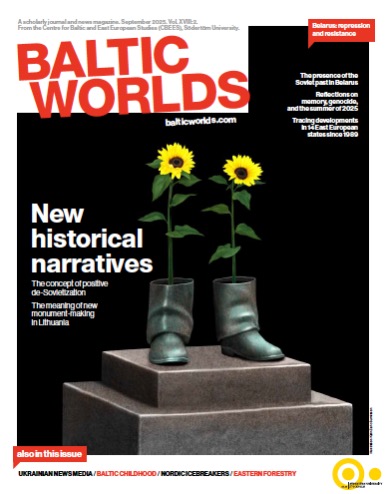MUSIC OF THE REVOLUTION: FOR WHOM THE BELL TOLLS?
It is difficult to identify why Maidan took a violent, military turn. Among the main possible reasons we might first note the inability of three opposition leaders (namely Vitaliy Klychko, Arseniy Yatsenyuk, and Oleh Tyahnybok) to settle on just one Maidan leader, and the absence of any visible, concrete accession to the demands of the protesters by the authorities.

 Issue 2025, 2:
Issue 2025, 2: